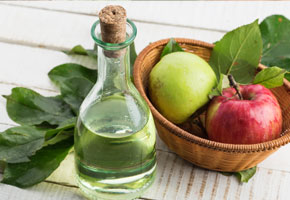
Processed or Raw? – Vinegar Part 2
By Karen Shepard | 0 Comments | Posted 05/24/2014
While most vinegars are distilled or pasteurized, there are pros and cons with both. Raw vinegar that is not pasteurized contains beneficial enzymes and bacteria known as “The Mother” that are missing in its pasteurized cousins. These living enzymes are largely responsible for the healing, restorative properties of vinegar. When ingested, it can help treat acne, acid reflux, cholesterol, constipation and high blood pressure. Acidic when sitting on your counter, inside your stomach it becomes akaline-forming, because the stomach has to produce almost no acid to digest it. This same acid outside the body makes it the perfect antiseptic and cleaning agent, killing foreign bacteria and cutting grease and dirt, but undiluted or ingested by those with conditions (such as ulcers) it can cause gastro upsets stomach irritation, digestive issues, heartburn and even diarrhea.
The practice of pasteurizing vinegar came about as a response to concerns about the living bacteria and enzymes, which can result in infections. Due to the highly acidic makeup of vinegar this risk is low, but should be considered.
A naturally occurring antibiotic and antiseptic that fights germs, bacteria, mold and viruses, it’s a good addition for a healthier better life!
To learn more
Versatile vinegar uses and tips
WebMD Benefits and Risks of Apple Cider Vinegar


 Contact us
Contact us



























